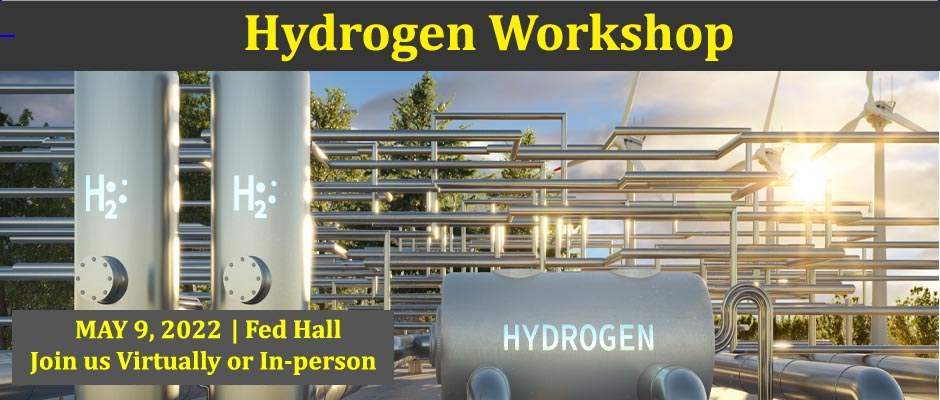Hydrogen Workshop

| HYDROGEN WORKSHOP |
The hydrogen and fuel cell industry has made significant advances in the past decade. The need for multi-megawatt fuel cell systems for electricity generation and utility-scale grid support applications is on the rise. Hydrogen can be produced using a variety of clean and renewable energy resources including biomass, hydro, wind, solar, nuclear, geothermal, and hydroelectric power to split water. It can also be generated through fossil fuels such as coal with carbon capture, utilization and storage, and natural gas. This diversity makes hydrogen a promising energy carrier and enables hydrogen production everywhere across the globe.
Hydrogen is used in fuel cells to produce electricity by using a chemical reaction as opposed to combustion, which produces water and heat as by-products. Fuel cells can function at higher efficiencies compared to combustion engines. They can convert the chemical energy in the fuel directly to electrical energy with efficiencies greater than 60%. Fuel cells have zero emissions, which addresses the critical climate challenges as there are no carbon dioxide release. In addition, the concept of applying ammonia as a carrier for hydrogen delivery has gained a lot of attention in recent years because ammonia is much easier to liquify than hydrogen. Therefore, it can be easily stored and used for transportation.
Hydrogen can be stored in either a gas or liquid form. Storage as a gas usually requires high-pressure tanks whereas storage as a liquid requires cryogenic temperatures due to the boiling point of hydrogen at one atmosphere pressure is below −252°C. Hydrogen can also be stored on the surfaces of solids via the adsorption method or within solids via the absorption method.
The Waterloo Institute for Sustainable Energy (WISE) at the University of Waterloo (UW) is hosting a hydrogen workshop comprising speakers from academia, private sector, government agencies, and not-for-profit organizations.
The workshop brings together an executive forum intended to encourage the exchange of ideas that will help create a roadmap to guide the future of green hydrogen and energy storage research in Canada. The workshop focus is on collaboration in hydrogen research, the exploration of opportunities for partnership, and the integration of efforts across stakeholder groups.
The event will engage experts from engineering, social science, policy and economics, facilitating new network connections to create important insights and ideas on the future of hydrogen. We anticipate inspired, wide-ranging discussions on all hydrogen related matters, from evidence-based decision making and policy planning to reduction of greenhouse gas (GHG) emissions and full-scale commercialization of fuel cells and hydrogen storage in the energy and transportation sector.
Page Options


